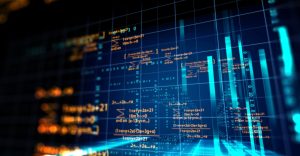With Tamagotchi Returning, Could Metaverse Pets Actually Survive?

While personalized digital pets are nothing new, dating back to the late 1990’s and early 2000s (thanks to Tamagotchi), Web3-based companies are looking to capitalize on the pet ownership market by targeting animal lovers and bringing them into the metaverse.
Most millennials you ask will tell you that they are either familiar with Tamagotchi pets and/or owned at least one growing up. Arguably, it was the first form of (pet) ownership and responsibility millennials ever (voluntarily) took on growing up.
Will Tamagotchi return?
As old as Tamatgotchi is, it has certainly made a come back in these recent years, with its website attracting over 125,000 visitors in December 2021 alone – a 750% increase from 2019 – laying claim to the fact that Web3 and the metaverse have the power to revive and transform reputable intellectual property and brands.
Last summer, Tamagotchi released its limited edition Star Wars R2-D2 model, which allows consumers to train R2-D2 to master various stills while also having him play in mini-games, along with a plethora of licensed content ranging from Star Wars, Toy Story, Pac-Man, and BTS’ Tiny Tan product lines.
Be[In]Crypto has reached out to Tamagotchi for any possible insight into whether they are exploring the metaverse, and is awaiting a response.
Turning to Web3 and the metaverse, virtual pet ownership is only going to become more interactive and fun, especially if household names like Tamagotchi get involved in the space
With the growing popularity of Web3, it’s no surprise that digital pets are finding new homes and owners in the metaverse.
Valued at over $41 billion, the NFT market has more than surpassed the traditional art space, opening the doors wide open to pet owners spanning across all industries from around the world who seek new forms of interaction.
Here are a few metaverse pet projects that any animal lover should keep on their radar as tech continues its drive towards Web3.
Digital Pets Company
Back in April, the Digital Pets Company announced that it will be launching AI-driven 3D digital dogs as companions for the metaverse.
In efforts to commercialize its tech, the company has raised pre-seed funding from Outlier Ventures, Hawk Digital, MaxStealth, and angel investor Rafi Gidron, who started Chromatis and eventually sold it to Lucent for $4.8 billion.
According to reports by VentureBeat, the startup is still in conversations with additional potential investors.
These AI-driven dogs, according to the company, will enable owners to interact with them in lifelike manners through voice, visual, and touch communications that allow people to communicate and engage with them in the same way they would in the physical world.
Specifically, it will leverage both extended reality (XR) and blockchain technologies to create a “continuous two-way emotional relationship” with a virtual being across these virtual environments, apps, and games.
Consumers will eventually be able to access the technology through the startup’s proprietary PetOS technology.
As for any former Tamagotchi (yes, millennials, we are speaking directly to you), MetaGotchi is another project to keep your eyes on. Of course, the project’s name combines the terms ‘metaverse’ with ‘Tamagotchi,’ the digital pet toy which launched in the ‘90’s.
Launched on the Ethereum network, MetaGochi has been referred to as one of the biggest virtual pet metaverse platforms on the market, with nearly half-a-million daily active users since July 2021. Since July, the platform says it has collected over $30 million in fees.
Launched in November 2021, MetaPets is the latest addition to the pet-a-verse, looking to bridge the gap between and among pet ownership, the metaverse, and events.
Having read the company’s whitepaper in-depth, one of the more interesting aspects about MetaPets is the ability to not just design and own their own pets, but the ability to participate in a wide range of events and activities including dog shows and horse races – while having the chance to generate revenue from the platform.
Axie Infinity
Taking CryptoKitties’ concept a step further, Axie Infinity allows players to build teams of Axies and battle through PVe and PvP content to become stronger, and unlock rewards. Due to the competitive nature of the game, Axie Infinity requires the purchase of in-game assets in order to have a better PvP combat experience.
Back in December of last year, Axie developers reported that they’ve added over 500,000 new Axie holders, nearly approaching 3 million daily active users.
“These players are battling and breeding Axie’s at a breakneck pace,” the company told PCMag, emphasizing that it had just welcomed its 10 millionth Axie to its platform.
Launched by Dapper Labs in 2017, CryptoKitties has maintained its success throughout the industry as one of the first blockchain-based games that allow players to purchase, collect, breed, and sell virtual cats.
As of today, it remains one of the most profitable projects in the space that has garnered attention from cat lovers across the globe.
What do you think about this subject? Write to us and tell us!
Disclaimer
All the information contained on our website is published in good faith and for general information purposes only. Any action the reader takes upon the information found on our website is strictly at their own risk.













